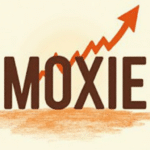The term hustle has become a buzzword in today’s fast-paced world, often associated with hard work, ambition, and the relentless pursuit of success. But what does it really mean? Let’s dive into the world of hustle, exploring its origins, cultural significance, and how it’s interpreted in modern times.
Key Takeaways
| Aspect | Description |
|---|---|
| Definition | Hustle refers to energetic activity or effort to achieve goals. |
| Origins | Derived from the Dutch word husselen, meaning “to shake.” |
| Modern Usage | Often linked to hustle culture, emphasizing constant work and productivity. |
| Cultural Impact | Influences perceptions of success and work-life balance. |

Definition and Etymology
Hustle can be both a verb and a noun. As a verb, it means to move quickly or work energetically. As a noun, it refers to busy movement or activity. The word originates from the Dutch husselen, which means “to shake”—a fitting metaphor for the dynamic nature of hustling.
Hustle Culture
Overview of Hustle Culture
Hustle culture is all about working tirelessly to achieve one’s goals. It’s the idea that constant productivity is the key to success. This mindset is prevalent in many industries today, where being busy is often seen as a badge of honor.
Comparison with Workaholism
While hustle culture promotes hard work, it’s important to distinguish it from workaholism. Hustle culture is often celebrated on social media platforms, where people share their grind stories and achievements. However, unlike workaholism, which can lead to burnout and health issues, hustle culture encourages finding passion in what you do.
Impact on Society
The societal implications of hustle culture are significant. On one hand, it motivates individuals to strive for excellence and innovation. On the other hand, it can lead to stress and an unhealthy work-life balance if not managed properly.
Also read: CPM Meaning
Modern Interpretations of Hustling

Hustling in Different Contexts
Hustling isn’t just about working hard; it’s also about working smart. In business, hustling might mean networking or finding creative solutions to problems. In creative fields, it could involve constantly honing one’s craft or seeking new opportunities.
Gig Economy
The rise of the gig economy has brought hustling into the spotlight. Many people now juggle multiple jobs or projects simultaneously, embodying the hustle mentality. This lifestyle offers flexibility and autonomy but also requires self-discipline and time management skills.
Also read: JAJAJA Meaning
Cultural Perspectives

Global Views on Hustling
Different cultures have varied interpretations of hustling. In some places, it’s seen as a necessary part of life; in others, it’s viewed with skepticism due to its association with overwork. Despite these differences, the core idea of ambition and determination resonates universally.
Resistance to Hustle Culture
Not everyone buys into hustle culture. Some people use memes and social media platforms to critique its downsides, such as burnout and neglecting personal life. This resistance highlights the need for balance between ambition and well-being.
For more insights into how language evolves with cultural trends, check out our articles on New York Slang or Gen Z Slang.
The Evolution of Hustle
The concept of hustling has evolved significantly over the years. Originally, it was associated with street smarts and finding creative ways to make a living. Today, it’s more about leveraging technology and innovation to achieve success in various fields.
Historical Context
In the past, hustling was often linked to urban environments where people had to be resourceful to survive. This included everything from side gigs to entrepreneurial ventures. As society progressed, the notion of hustling expanded beyond survival to encompass ambition and personal growth.
Digital Age Transformation
With the advent of the internet and digital tools, hustling has taken on new dimensions. Online platforms enable individuals to start businesses, engage in freelance work, or pursue creative projects from anywhere in the world. This shift has democratized opportunities, allowing more people to participate in the hustle culture.
Future of Hustle Culture

As we look ahead, hustle culture is likely to continue evolving. Here are some trends and predictions:
1. Emphasis on Balance
While hustle culture emphasizes hard work, there’s a growing recognition of the importance of balance. Future trends may focus on integrating well-being practices into daily routines to prevent burnout.
2. Technology Integration
Advancements in technology will further influence how people hustle. Automation and AI could streamline tasks, allowing individuals to focus on strategic and creative aspects of their work.
3. Redefining Success
The definition of success is shifting from purely financial achievements to include personal fulfillment and impact. This broader perspective may lead to a more sustainable approach to hustling.
Conclusion
Hustle is more than just a buzzword; it’s a way of life that encourages ambition and resilience. However, it’s essential to approach it with a balanced mindset to avoid the pitfalls of overwork and stress. As hustle culture continues to evolve, embracing flexibility and well-being will be key to thriving in this dynamic landscape.
For those interested in exploring more about cultural shifts and language evolution, check out our articles on Australian Slang and Irish Slang.
In this article, we’ve delved into the multifaceted meaning of hustle, from its historical roots to its modern-day interpretations. Whether you’re part of the gig economy or pursuing traditional career paths, understanding hustle culture can provide valuable insights into achieving your goals while maintaining a healthy work-life balance.







